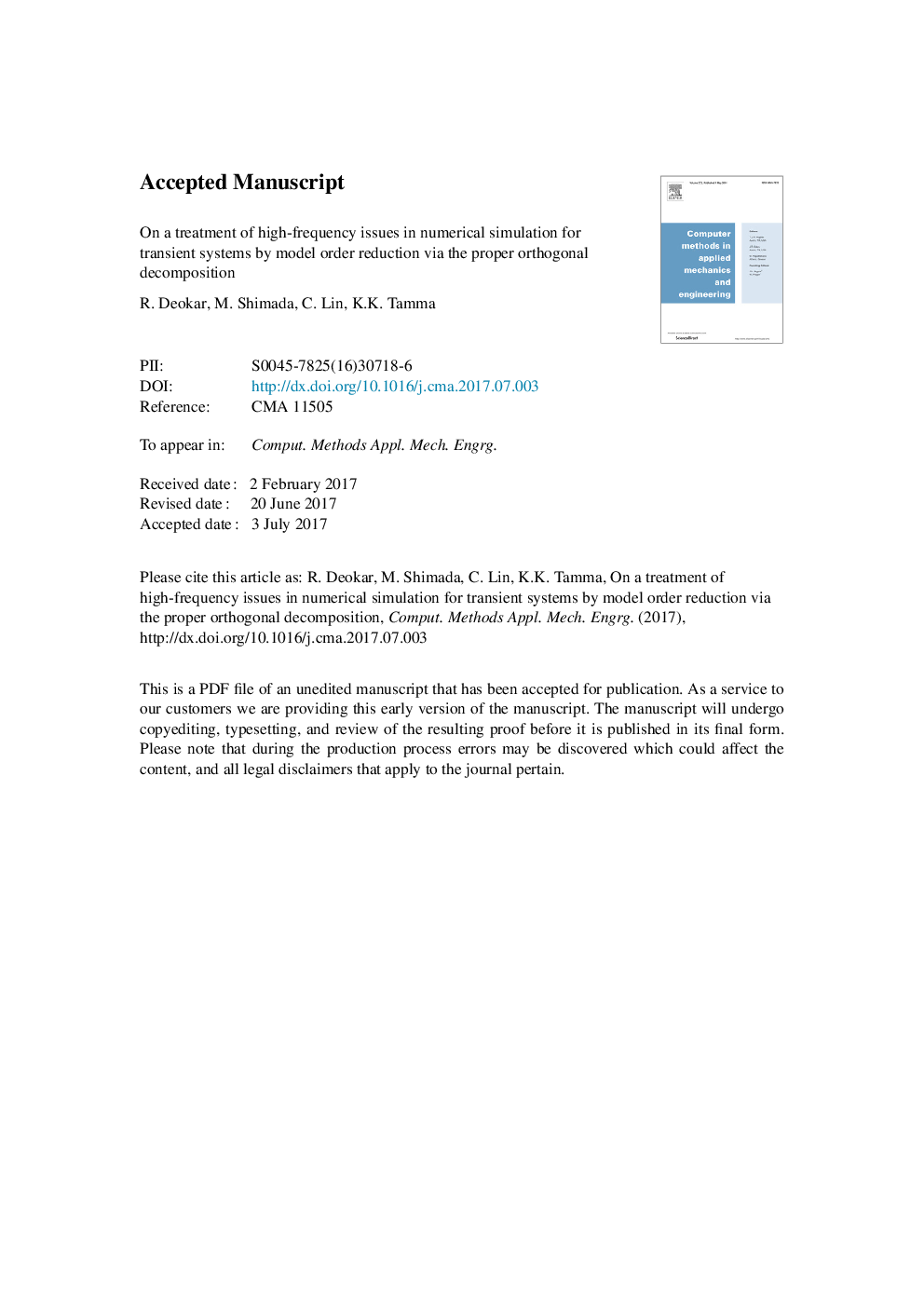| Article ID | Journal | Published Year | Pages | File Type |
|---|---|---|---|---|
| 4963786 | Computer Methods in Applied Mechanics and Engineering | 2017 | 22 Pages |
Abstract
A new numerical strategy to remedy high-frequency issues caused by finite element discretization in structural dynamic problems has been proposed. A noteworthy characteristic of this advocated approach is that it is based upon the use of the proper orthogonal decomposition (POD) incorporated in conjunction with implicit or explicit numerically non-dissipative time integration schemes to substantially improve or eliminate undesirable effects due to high-frequency instabilities. Original systems with high-frequency issues are reduced via POD based on an adequate choice of a numerically dissipative scheme so that the resulting reduced systems contain no high-frequency participation. This approach confers the inherent advantages that numerically non-dissipative mechanical integrators, e.g., energy-momentum conserving or variational integrators, can be used to solve the reduced systems, fulfilling the requisite conservation laws in the projected basis and therefore provides a robust simulation. Linear and nonlinear numerical applications are shown to demonstrate the benefits and feasibility of this technique.
Related Topics
Physical Sciences and Engineering
Computer Science
Computer Science Applications
Authors
R. Deokar, M. Shimada, C. Lin, K.K. Tamma,
